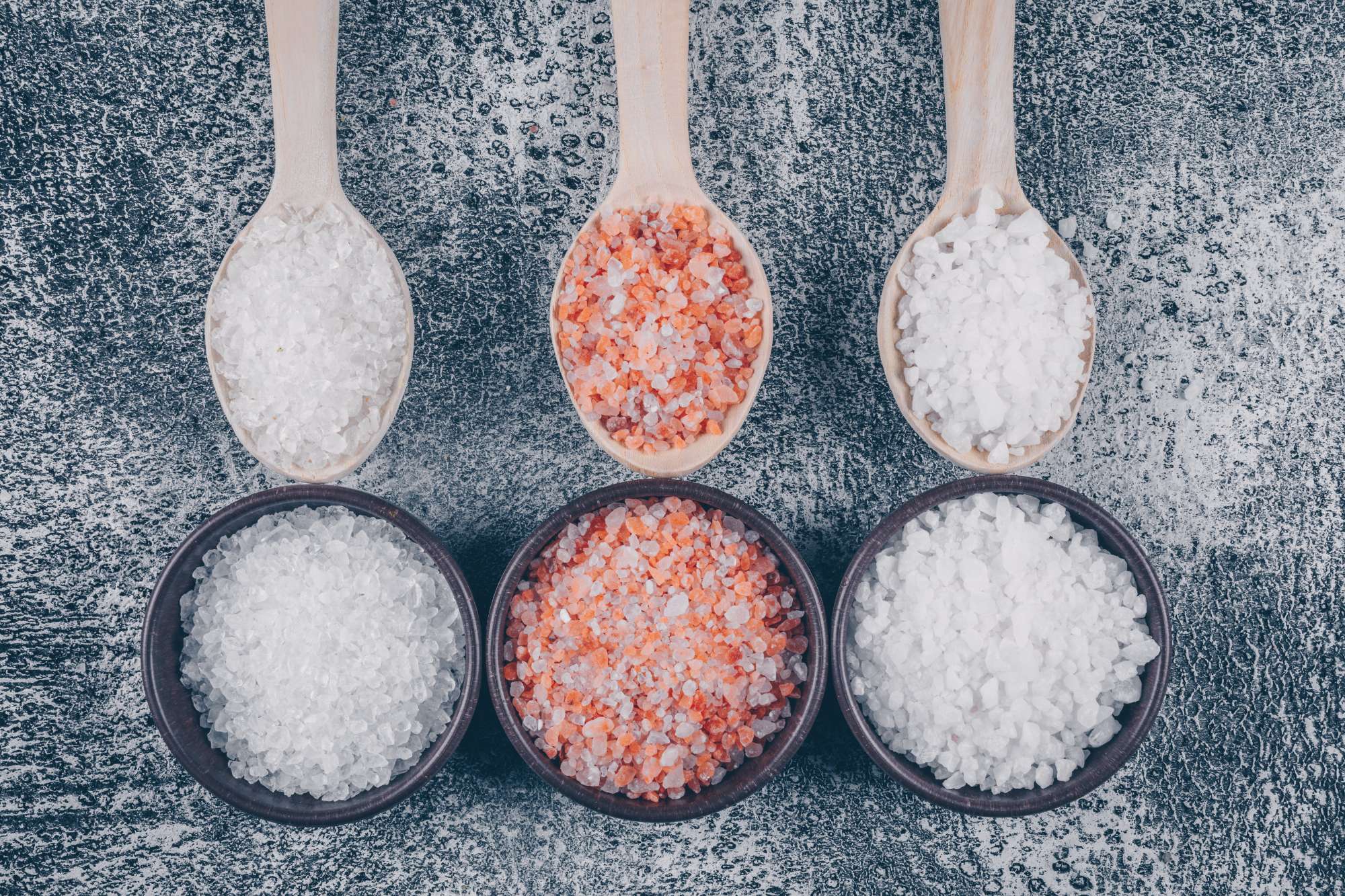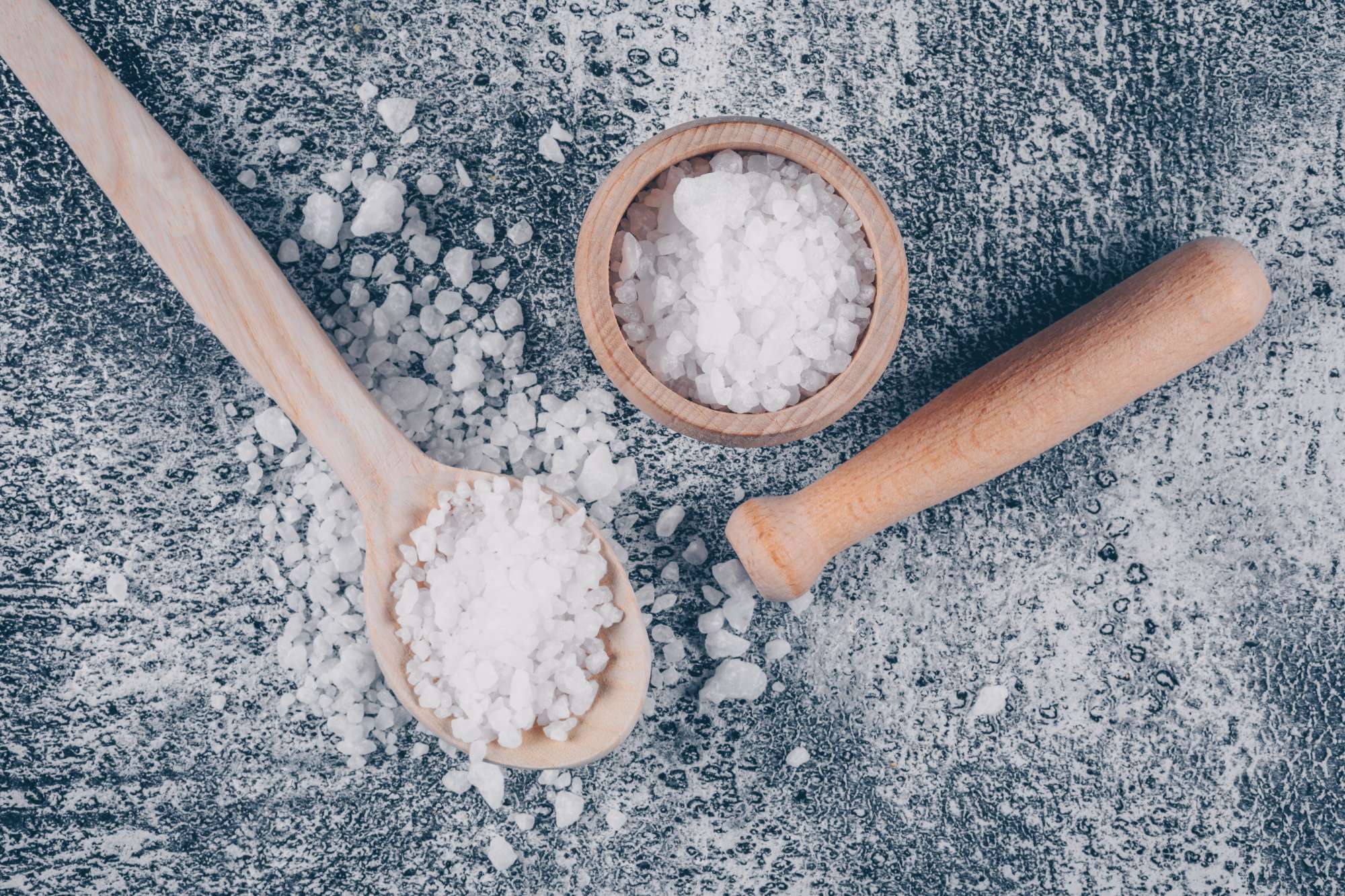Chloride, a mineral essential for many body functions
Chloride, a mineral essential for many body functions
Chloride is the primary anion in extracellular fluid. In addition to passively following sodium, chloride has its own protein channels that reside in cell membranes. These protein channels are especially abundant in the gastrointestinal tract, pancreas, and lungs.
"Chloride" is a mineral essential for many body functions (it is completely different from the "chlorine" used to keep swimming pools clean). Chloride is found naturally in many different foods, but our main dietary source is sodium chloride, also known as table salt. The weight of salt is a combination of 40% Sodium and 60% Chloride.
Chloride carries an electric charge and therefore is classified as an electrolyte, along with sodium and potassium. It helps to regulate the amount of fluid and types of nutrients going in and out of the cells. It also maintains proper pH levels, stimulates stomach acid needed for digestion, stimulates the action of nerve and muscle cells, and facilitates the flow of oxygen and carbon dioxide within cells.
Chloride is absorbed in the small intestine and remains in the body’s fluids and blood. Any excess amount is excreted in urine. Chloride is usually bound to sodium, and therefore the amount in blood tends to coincide with sodium levels.

Role of chloride in our body
Chloride aids in fluid balance mainly because it follows sodium in order to maintain charge neutrality. Chloride channels also play a role in regulating fluid secretion, such as pancreatic juice into the small intestine and the flow of water into mucus. Fluid secretion and mucus are important for many of life’s processes. Their importance is exemplified in the signs and symptoms of the genetic disease, cystic fibrosis.
Cystic FibrosisCystic fibrosis (CF) is one of the most prevalent inherited diseases in people of European descent. It is caused by a mutation in a protein that transports chloride ions out of the cell. CF’s signs and symptoms include salty skin, poor digestion and absorption (leading to poor growth), sticky mucus accumulation in the lungs (causing increased susceptibility to respiratory infections), liver damage, and infertility.
Other Functions of ChlorideChloride has several other functions in the body, most importantly in acid-base balance. Blood pH is maintained in a narrow range and the number of positively charged substances is equal to the number of negatively charged substances. Proteins, such as albumin, as well as bicarbonate ions and chloride ions, are negatively charged and aid in maintaining blood pH. Hydrochloric acid (a gastric acid composed of chlorine and hydrogen) aids in digestion and also prevents the growth of unwanted microbes in the stomach. Immune-system cells require chloride, and red blood cells use chloride anions to remove carbon dioxide from the body.

Chloride Imbalances
Low dietary intake of chloride and more often diarrhea can cause low blood levels of chloride. Symptoms typically are similar to those of hyponatremia and include weakness, nausea, and headache. Excess chloride in the blood is rare with no characteristic signs or symptoms.
How much chloride do you need per day?
We get chloride mostly from table salt (salt contains 60% chloride) in our daily diet. One teaspoon of salt is equivalent to 5,600 milligrams, has 3,400 milligrams of chloride and 2,200 milligrams of sodium. The Adequate Intakes (AI) guideline for people ages 14-50 and pregnant or breastfeeding women is 2,300 milligrams, for ages 51-70 it is 2 grams per day, and for women ages 51-70 it is 2 grams per day. For those aged 71+, it is 1,800 milligrams. Therefore, just ⅔ teaspoon of table salt per day is enough to provide chloride as well as sodium.
Food sources contain chloride
Chloride is found naturally in small amounts in tomatoes, lettuce, olives, celery, rye, whole grain foods, meat and seafood, but the main source in the diet is table salt. (sodium chloride), and is used as an additive and preservative in processed foods.
- Seaweed
- Shrimp
- Table salt, sea salt, Kosher salt
- High-sodium processed foods including deli meats, hot dogs, cheese, and potato chips
- High-sodium condiments including soy sauce, Worcestershire sauce, ketchup.


Bioavailability
Bioavailability refers to the amount of a particular nutrient in foods that is actually absorbed in the intestine and not eliminated in the urine or feces. Simply put, the bioavailability of chloride is the amount that is on hand to perform its biological functions. In the small intestine, the elements of sodium chloride split into sodium cations and chloride anions. Chloride follows the sodium ion into intestinal cells passively, making chloride absorption quite efficient. When chloride exists as a potassium salt, it is also well absorbed. Other mineral salts, such as magnesium chloride, are not absorbed as well, but bioavailability still remains high.
Chloride, sodium and potassium interactions
Chloride interacts with sodium and potassium to help regulate the volume of water in the body and to support the function of our muscle’ and nerve cells.
Having the right balance of these three minerals in our diets – particularly by making sure we eat enough potassium and keep our salt intake within the recommended values – is key to support a healthy blood pressure.

Signs of Deficiency and Toxicity
1. DeficiencyA chloride deficiency is extremely rare in the U.S. where the average diet is high in sodium. Most foods that contain sodium will also provide chloride. A loss of chloride in the body usually accompanies conditions that cause sodium losses. These include conditions that remove too much fluid from the body, such as prolonged diarrhea, vomiting, or excessive sweating. Diuretic medications that remove fluid through the kidneys can also cause decreased chloride levels. In cases of sudden, very high levels of blood glucose such as seen in people with diabetes, the kidneys will flush more sodium and water out of the body, leading to lower chloride levels.
2. ToxicityToxicity from the diet is rare in healthy people. Excess chloride levels in the blood, called hyperchloremia, can be caused by severe dehydration, diarrhea, or metabolic problems in which the blood becomes too acidic, such as with kidney disease. A high salt diet can lead to an excessive intake of sodium chloride, which is associated with elevated blood pressure. Symptoms of toxicity: Muscle weakness, High blood pressure, Fatigue.
Compiled and penned by Crocus Media
Products

Drip Bags Coffee
This is a combination version of the delicate sweetness of Red Bourbon coffee with the rich sweetness of Catimor coffee, taking the seductive aroma of Bourbon to activate the feeling of euphoria. Pre-ground coffee, contained in a paper filter bag, is very convenient and saves time to make a perfect cup of coffee that brings many health benefits and mental refreshment.

Rô Sẻ
Rô Sẻ is a Sẻ Robusta coffee, grown in Lâm Hà - Lâm Đồng at an altitude of 980 meters. The fermentation and drying stages of Rô Sẻ coffee are ten times more labor-intensive than normal Robusta coffee.

Arabica coffee
Arabica, which originates from the forests of Southern Ethiopia and Yemen, is by far the most popular coffee in the world with the total output accounting for more than 60%. Arabica beans have different flavors depending on the region, it can be sweet with a fruity flavor but can also have a grainy or nutty flavor.

